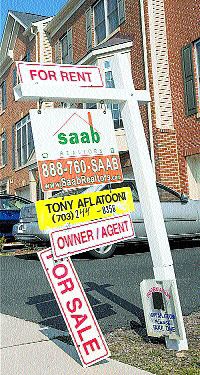rules: Bylaws can be complicated due to many exemptions and amendments
Tony Gioventu
Province

A well-run strata shows in the condition of the building and finance records. Photograph by: AFP, Getty Images, Special to The Province
Dear Condo Smarts: We live in Toronto and will be retiring to Vancouver to be near our family in the next five years. We have been looking for a condo in either Vancouver or Victoria and are working with a real estate agent.
The agent has told us that we are best going into a building that does not limit rentals — that way we won’t be restricted on our use — but we are quite uncomfortable with a building that might be all rentals.
We understand you might not be able to answer this question but what is better: a condo that permits rentals, prohibits rentals or controls the limit?
— Adrienne Lefevre
Dear Adrienne: You have asked the million-dollar question that everyone asks regarding rentals in strata buildings.
Rentals are much more complicated than simply whether they are permitted or not and the impact they might or might not have on real estate values.
Your intended use of the strata lot ultimately influences your conclusion.
Our offices assist every type of strata in the province, and there is no hard and fast rule.
There are strata corporations that permit 100 per cent rentals that are model operations. And there are strata corporations that prohibit rentals, some of which are plagued with conflict and some of which are harmonious and efficiently run.
If a strata corporation has an enforceable rental bylaw, and the strata council is reasonably active regarding bylaw enforcement,
the community will likely function well.
Rental bylaws, however, are the most complicated of all to enforce. There are exemptions that apply to family rentals, hardship rentals, owner developer rental disclosure exemptions, and of course permitted rentals.
A strata bylaw might permit only 10 rentals in a 120-unit building, but in addition to those 10, there might be another 15 family rentals, a couple of hardships and, in a newer building, many of the first purchasers might still be exempt.
When a Form B Information Certificate is produced for an owner, one section refers to the number of strata lots that are rented.
It is almost impossible for this number to be accurate, especially in larger strata corporations,
without conducting routine title searches.
Even then, a strata would have to consider whether exemptions are included in the number or not, and if or how those would be reported.
Another new twist to rentals is the amendment under Bill 8 that effectively will exempt a new building after Dec. 31 from rental bylaws for a specific period of time.
If a developer files a proper rental disclosure statement, the building can be restricted from adopting a rental bylaw for that period. For an investor, that would be beneficial as the property’s use would not be altered in that period. But if you are looking for a resident owner community, this will prohibit the strata residents from regulating rentals in that period.
I visit excellent strata communities all over the province that vary in their rental bylaws. They all have one thing in common though. They are consistently well managed and well maintained properties.
It is important to remember when looking at a property that you review the minutes of meetings, do a site walk about, review the strata insurance, the financial operations, maintenance programs and long-term renewals.
If the strata is well run, it will show in the condition of the building, the finances and the effectiveness of its general operations.
Most important, get everything in writing. If you have any questions about engineering reports, alterations, building conditions and building history, put your questions in writing. Insist on a reply in writing, and keep those letters on file.
Tony Gioventu is executive director of the Condominium Home Owners’ Association, e-mail [email protected]
© Copyright (c) The Province

